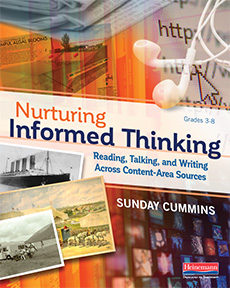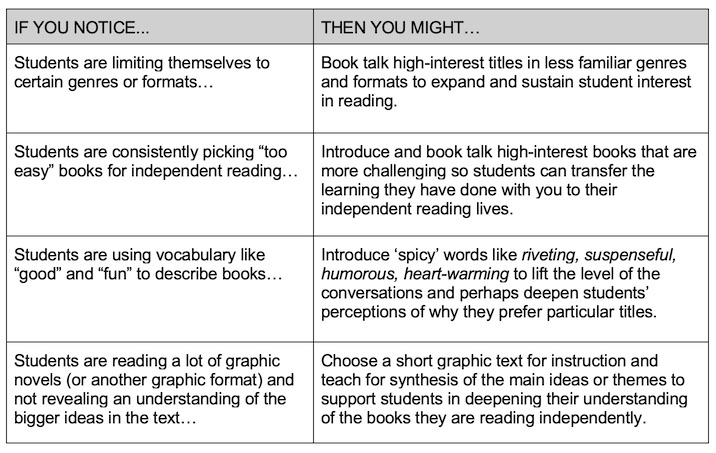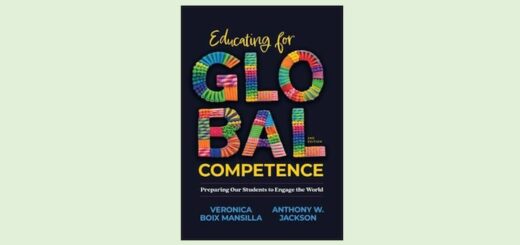Build a Joyful Bridge to Independent Reading
By Meghan Duermit and Sunday Cummins

Meghan
Ever met a student who loves being with you during reading instruction? Who seems to thrive as a reader when you are present to coach but struggles during independent reading? Or fails to pick up a book on their own?
This actually may not be the reader’s problem. It may be a problem with reading instruction being detached from independent reading.

Sunday
For many students, the two occur in different parts of the day, in different places, and even with different teachers. Students are left to make the jump on their own from a sheltered place for risk taking to the wilder world of reading on their own.
So how do we bridge the two experiences so that we ensure students actually practice what they have learned? In a previous article, we shared approaches Meghan has found helpful in her practice as a literacy specialist:
- maintaining a small library of high-interest books for students to choose from;
- coaching students on how to pick “just right” books; and
- making time to confer with students while they begin to read those books.
Since we wrote that article, Meghan has added another approach – inviting students to give a brief talk about a book they are enjoying reading independently. This “quick talk” has a lot of potential for bridging the gap between instruction and joyful independent reading. The table below includes tips for implementing book talks.
A Sense of Community Develops
When students share, they may reveal more about who they are beyond the reading table. One of Meghan’s fifth grade students, Evelyn (all students’ names are pseudonyms), arrived in the United States from Nigeria when she was in third grade.
The book talks (as well as other conversations during instruction) became a way for Evelyn to share the connections she made to her life in Nigeria – connections that helped her make better sense of what she was reading.
Evelyn’s book talks revealed to her peers not only a book they might want to read and what they could do to make sense of texts, but also how wide the world is. In a sense, as part of the book talk experience, our students become more visible to others, including us.
Reading Interests Expand
Over the course of the year, students shared titles in a wide variety of genres and formats from picture and chapter books to graphic novels. Due to the pandemic, Meghan taught much of the year virtually so students also shared digital texts they were enjoying like webcomics.
When Meghan surveyed her students at the end of the year, over and over again, students expressed gratitude for being able to hear about what their peers were reading. There were comments like “it was interesting what other people were reading” and it was “helpful learning about books.”
Evelyn from Nigeria said, “I like sharing ideas. If you like it very much, you might share it and they might like it.” Many students noted that as a result of the book sharing, they read specific titles someone recommended. Addy, a 4th grade student, shared, “I got interested in The Baby-Sitters Club series from someone that presented!”
Teaching Points Emerge
The titles students are sharing can become a data point that can inform instruction. Meghan kept notes on a simple chart with details about who shared, the title of their book and a little bit about the content of their talk. This helped her identify useful teaching points. The table below includes possible teaching points that might surface.
The Joy of Personal Reading Increases
Some students do not enjoy reading. This may be because it is difficult or because they have not encountered reading materials that spark their interest.
Last year Meghan surveyed her students about their interest in reading at the beginning, the middle, and the end of the year. Many revealed an increased interest in reading. While it’s impossible to say why this happened for each student, effective instruction and their opportunity to engage with a community of readers sharing books they’d enjoyed probably had some influence.
Whatever the reasons, book sharing seemed to have a positive impact on many students’ sense of agency as readers. As student Diamond responded when asked about the benefits of the book shares, “You get smarter.”
Meghan Duermit is a Reading Specialist in Indian Prairie School District #204 in Aurora, Illinois. She has been a Reading Specialist in the district for many years and has worked with struggling readers in Kindergarten through Grade 6. She teaches interventions to strengthen student’s reading skills and also provides professional development at the school and district level and at state conferences. Over 22 years, she has been a classroom teacher, literacy coach, and reading specialist and loves to share her joy of reading with her students.
 Sunday Cummins is a literacy consultant and author and has been a teacher and literacy coach in public schools. Her work focuses on supporting teachers, schools and districts as they plan and implement assessment driven instruction with complex informational sources including traditional texts, video and infographics. She’s the author of several professional books, including her latest releases, Close Reading of Informational Sources (Guilford, 2019), and Nurturing Informed Thinking (Heinemann, 2018).
Sunday Cummins is a literacy consultant and author and has been a teacher and literacy coach in public schools. Her work focuses on supporting teachers, schools and districts as they plan and implement assessment driven instruction with complex informational sources including traditional texts, video and infographics. She’s the author of several professional books, including her latest releases, Close Reading of Informational Sources (Guilford, 2019), and Nurturing Informed Thinking (Heinemann, 2018).
Sunday is a graduate of Teachers College, Columbia University, and has a doctorate in Curriculum and Instruction from the University of Illinois, Champaign Urbana. Visit her website and read her regular blog posts on teaching information literacy. Follow her on Twitter @SundayCummins.




































